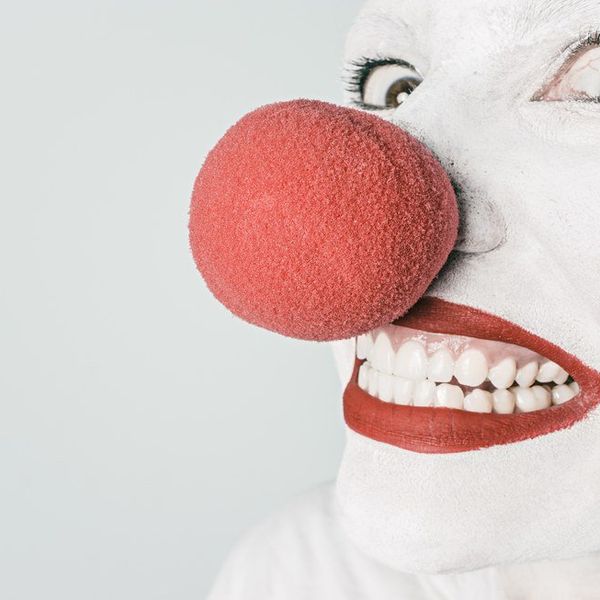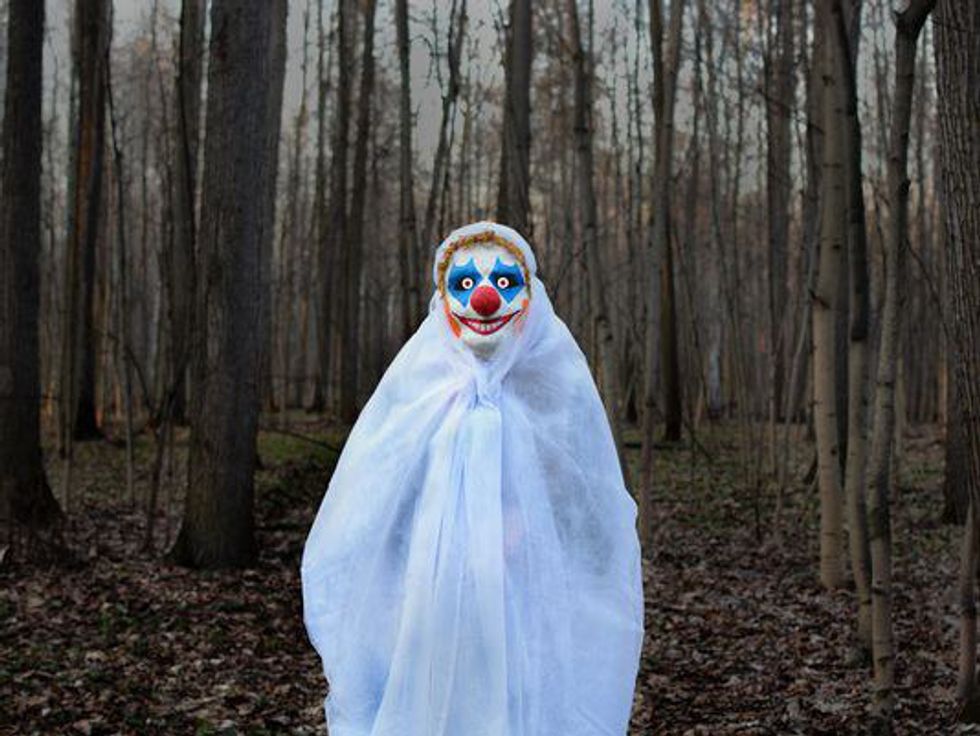Throughout the summer, police all over the country, especially in the South, have been receiving calls about clowns creeping about in the woods or outside people's apartments. A number of these reports have turned out to be hoaxes, such as in LaGrange, Georgia where a man and woman claimed that a clown driving a white van was planning to abduct children. The two were arrested and charged with abusing the 911 system. In Flomaton, Alabama, 20-year-old Makayla Smith and her teenage friends were arrested for threatening the local high school on Facebook. It's unclear why all this false reporting has gone viral, but there's no denying that even the suggestion of clowns lurking about is pretty creepy. Pretending to threaten kids is equally creepy, if not more so. Clowns are supposed to bring joy and laughter to people's lives (even when they're crying on the inside), but they can be twisted into something sinister. Just what is it about clowns that creeps people out?
One of the creepy clown pictures circulating on Facebook
The fear of clowns is called coulrophobia and approximately 12 percent of Americans suffer from it. Some coulrophobes won't even eat at McDonald's if they associate it with Ronald McDonald (though, there are plenty of other reasons for avoiding McDonald's). When faced with a clown, a person with this phobia may experience panic, difficulty breathing and an irregular heartbeat (just like eating at McDonald's). For some, the phobia stems from the anonymity of clowns and the fact that they don't know who is behind the makeup. Maybe the sufferer had a traumatic encounter with a clown or masked person as a child. Others may have seen It or Killer Klowns from Outer Space at an early age and were scarred for life. Maybe they're old enough to remember hearing about serial killer John Wayne Gacy, which would be an understandable reason for being suspicious of clowns.

Anxiety over a disguised person can be tied back to the Freudian concept of the "uncanny valley," the idea that someone or something can be simultaneously familiar and disturbingly unfamiliar. The white face paint and red nose of a clown may look very alien to a coulrophobia sufferer and deviates from the societal norms they may have been conditioned to accept. According to Freud, a person's super-ego may be telling them that social deviation is a symbolic castration. Being castrated by a clown does seem like a pretty scary idea, regardless of whether it's symbolic or literal. As with any phobia, coulrophobes may need to determine the possible origin of their fear before they can work through it. As for the clown sighting hoaxes, I'm sure we can expect a few more with Halloween around the corner.






















